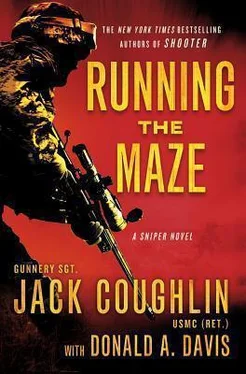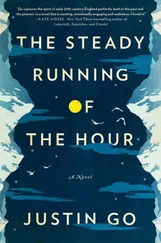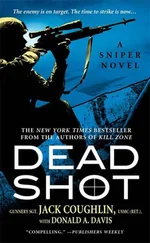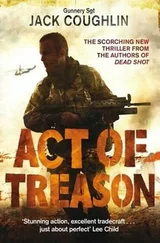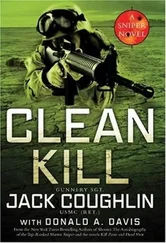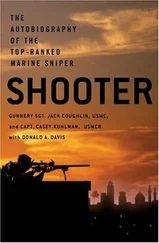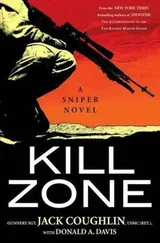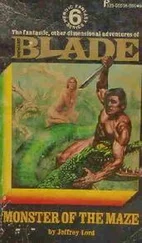Ahmad was knocked senseless when a club smashed into his head, and then he was toppling off the bridge and into the water below, his right arm cracking on a big rock before he was swept downstream. He heard a distant cry from Ali, then just the rush of the water. His right arm would not work, but he flailed and kicked as he gasped for air. He managed to get out of the main flow of the river, and a whirling eddy pushed him to calmer water, where he dragged himself ashore. He struggled to turn over, coughed up some water, and flopped onto his back to catch his breath.
Ahmad struggled to his feet, cradling his hurting arm, knowing it was broken. He had been taken down the river, but not too far. As his thoughts cleared, he called, “Ali?” Steered by the lights on the new bridge, he saw the tilted beams of the collapsed old one and broke into a run.
He could not find Ali at first and thought that maybe he also had been thrown into the river. He stepped onto the span and edged forward, feeling the rusty steel beneath his feet and reaching for handholds. Something was at the far end. “Ali?”
Ahmad took one final step, then stopped in shock and horror. The body of his best friend hung from a steel beam, hoisted like a goat for butchering. A rope was looped over the brace and tied around Ali’s ankles, with the arms hanging straight down, as if pointing toward the pool of blood on the deck below the body. There was no head.
Ahmad gripped a big girder with all his might as his aching head reeled, and he heard a man shouting from the darkness on the far side of the river.
“Go home! Tell everyone what you have seen tonight. Tell them what the Djinn does to those who intrude in his valley.”
Ahmad ran.
THE PENTAGON
“WHAT ARE WE LOOKING at?” Major General Brad Middleton had unfolded two blurry photographs and spread them flat on his desk with his palms.
Beth Ledford fought her anxiety at being in the general’s presence, and at the whole operation in which she had become so unexpectedly involved. “Those are blown-up versions of the last two pictures that my brother sent to me from his cell phone. They lost quality when I downloaded and made those prints. Sorry. I don’t have the technology to get better pictures.”
Middleton arched his heavy left eyebrow. “I know they are photographs, Petty Officer. But of what?”
“Sir, the one on your left is of an old steel bridge that has fallen into a river in Pakistan, maybe washed away by the floods, or even earlier. Joey attached it to a text message that asked, ‘Remember this?’”
“Why would he think that? Were you ever in northwest Pakistan?” The general reached into his desk drawer and scuffled around until he found a large magnifying glass. He bent closer to the photo, studying it.
“No, sir. My brother was referring to an old abandoned bridge near our family’s farm in Iowa. It once was part of a spur rail line, but that closed in the fifties, and eventually, the bridge fell down. We played on it when we were kids. The skeletons of the two bridges are remarkably alike.”
Middleton grunted. He saw nothing of interest. He pushed it aside and ran the magnifying glass above the second picture. A huge new bridge was under construction, a colossus that looked more like a dam. “And this one?”
Ledford shifted, and her hands drew into fists on the arms of the chair. “I think that’s why he was killed.”
Middleton lifted his eyes to meet her gaze. “Tell me.”
“Here’s what the text message on this said.” She helped herself to a pen and a yellow legal pad from the gerneral’s desk and wrote N TRBBL RUNNING CC. He passed it around without comment. “That was the last contact anyone had with the team. Since I never take my phone or personal effects off base during a mission, I didn’t receive these until we finished a multiday patrol in Somalia. By then, it was too late.”
The general grunted and slid the pictures aside. The photos had already been examined by Summers and the Lizard, and they would not have passed them up the chain of command to him unless they thought the information was worthwhile. “I still don’t see anything.”
“You probably won’t, sir, not in the picture at least.” Ledford was more certain of her ground now. At least the members of Task Force Trident, including its commanding general, were listening to her. “It’s in the message itself, sir, not only the photographs. The ‘CC’ initials. Our father was an Army infantryman in Vietnam, and since he was small, he sometimes was assigned as a tunnel rat. He used to tell us stories about being underground with a flashlight and crawling through these amazing networks of tunnels, like an anthill. One place he worked was around the town of Cu Chi, not far from Saigon. Joey and I were too young to take it all in, but when we would find some exciting place to explore, we would call it Cu Chi. Then we shortened the name to just CC.”
“Your conclusion, then, is what, Petty Officer Ledford?” Middleton pushed back in his chair and was watching her for signs that she might be lying, or making it up as she went along.
“Sir, I think—I know—that my brother’s medical team stumbled into somewhere they were not supposed to be and discovered something that reminded him of Cu Chi. Somehow he figured out they were tunnels, and probably for military use. The Taliban chased them down and killed them to keep it secret.”
“You informed your superiors and people in here in Washington of everything you just explained to us?” The other four members of Trident had sat by without comment as the general addressed Ledford.
“Yes, sir. Nobody listened.” She hesitated. “Nobody cared.”
Middleton glanced at Swanson. “Now she is being followed by the FBI?”
“Best as I can tell, although I didn’t ask to see their badges. It’s a total surveillance package.”
“But the FBI did not confiscate your cell phone when you spoke to them?”
“No, General. The two agents showed no interest in me, or my story. They listened politely and told me how sorry they were that my brother had been murdered by jihadist fanatics.” The memory of the brush-off made Ledford’s lips tighten. “I don’t understand it.”
The general examined her quietly for a few moments, and the room fell silent. “Well, Petty Officer, I frankly don’t understand it either, and I don’t like it.” He unfolded from his chair and walked to the window, looked out, then turned back, having made his decision. “Lieutenant Colonel Summers, I want you to set up Petty Officer Ledford with a lawyer and take a sworn statement, and get a polygraph so we can start a file on this. Names, dates, and places of the people she talked with. Lizard, take her cell phone and go do some of your electronic magic. See if it has been hacked, get the call history, and enlarge those two photographs, as clear as you can get them. Gunnery Sergeant Swanson, you find out what’s going on with our friends at the FBI. Everybody be back here at six o’clock for a briefing.”
Master Gunny Dawkins cleared his throat loudly to get the general’s attention. “Sir, we already have a Green Light project under way.”
“I am aware of that,” Middleton said. “We just have to juggle two balls with one hand for a little while. Dismissed. Get out of here.”
THE MALL WASHINGTON, D.C.
SPECIAL AGENT DAVID HUNT of the Federal Bureau of Investigation met Kyle Swanson in a Starbucks near the National Archives, where they each bought a coffee and walked the two blocks to the Mall. The tourists were not as thick in August, with schools around the nation getting ready to start and vacation time drawing to a close. Hunt had been with the Bureau for almost twenty-five years, and somewhere along the way, the burly special agent had become a bureaucrat. He didn’t even remember when it happened. He thought more and more about life after the Bureau, retirement, slowing down and rebuilding the family time that had suffered for his job for so long. Maybe even learn how to fish. No, not that. Fishing was worse than playing golf.
Читать дальше
